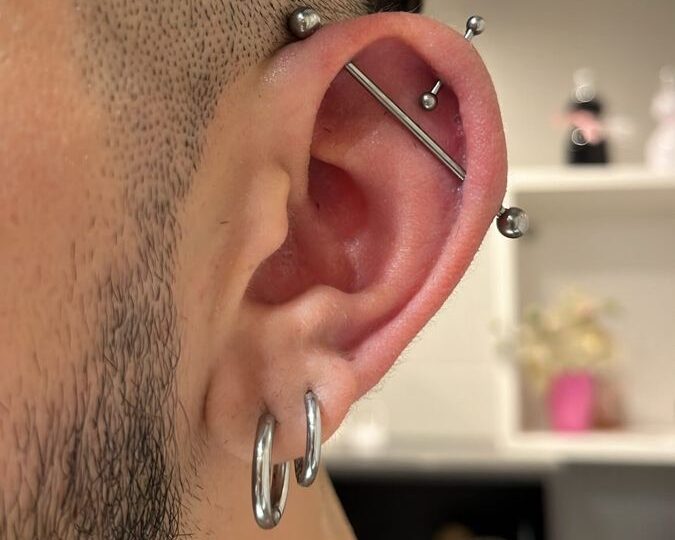
Elegance in Rebellion.
Own the Edge.
Why Criticism Hurts and How to Stop Letting It Control Your Emotions

Every man has felt the sting of criticism. It doesn’t matter if it comes from a boss, a partner, or a stranger online — sometimes just a single comment can stick in your head for days. You replay it, argue with it, and start doubting yourself.
But here’s the reality: criticism is unavoidable. What you can control is how you handle it. A gentleman doesn’t collapse under judgment, nor does he lash out defensively. He learns to filter, absorb what’s useful, and discard the rest. That ability not only protects your emotions, it builds confidence and resilience.
Let’s break down why criticism hurts in the first place, and then explore practical strategies men can use to stop letting it control them.
Why Criticism Cuts So Deep
- It Challenges Your Identity
Men often tie self-worth to performance — career, relationships, fitness, status. Criticism feels like an attack on your identity, not just your action. - It Triggers Old Patterns
Negative feedback can resurface childhood memories — teachers, parents, or peers who made you feel inadequate. The brain reacts to criticism as if it’s the same wound reopening. - It Creates a Power Shift
When criticized, you feel smaller, like the critic has authority over you. Even if it’s not true, your mind perceives a loss of control.
👉 Understanding this helps. The sting isn’t always about the present comment — it’s about what your brain ties it to.
Practical Ways to Stop Letting Criticism Control You
1. Separate the Message from the Delivery
Not all criticism is packaged politely. Some people project their frustration onto you. Instead of reacting to how it was said, focus on what was said.
👉 Practice: Write down the exact words of the criticism (not the tone). Ask yourself: “Is there anything useful here?” If yes, act on it. If no, discard it.
2. Ask for Specifics
Vague criticism like “you’re not good enough” is useless. Specific criticism like “your report lacked data” is actionable.
👉 Next time: When criticized, calmly ask: “Can you give me an example?” This forces clarity and takes back power.
3. Control Your First Reaction
Most men either go silent or snap back defensively. Neither helps.
👉 Technique: When you feel triggered, pause. Take a slow breath before responding. Even two seconds of calm separates reaction from choice.
4. Reframe Criticism as Free Feedback
Think of criticism as information you didn’t have to pay for. It might sting, but sometimes it points out blind spots.
👉 Example: If a boss says, “You seem disorganized,” instead of spiraling into shame, ask yourself: “What system can I build to prove otherwise?”
5. Remember the Source
Not all critics deserve weight. A mentor’s tough words? Worth gold. A random stranger online? Worth nothing.
👉 Rule: Evaluate criticism by the credibility of the person. If they’ve walked the path you respect, listen. If not, let it slide.
6. Build a “Criticism Buffer”
Don’t rely on one opinion. Create a circle of trusted voices — friends, colleagues, or mentors who give honest, constructive feedback. Their balance makes single negative comments less powerful.
7. Practice “Mental Armor”
Criticism will always hurt at first — that’s human. But you can train recovery.
👉 Exercise: Next time you’re criticized, don’t fight the sting. Tell yourself: “This discomfort lasts minutes. It doesn’t define me.” Over time, the sting fades quicker.
8. Channel the Energy
Instead of letting criticism paralyze you, turn it into fuel. Many men build careers, physiques, and reputations out of proving doubters wrong.
👉 Example: If someone calls you lazy, make consistency your weapon. Let action, not arguments, be the answer.
9. Strengthen Your Self-Image Daily
The stronger your self-image, the less criticism penetrates. Confidence built only on external approval collapses. Confidence built on discipline — routines, fitness, competence — endures.
👉 Habit: Write down one thing you did well every evening. Over time, you build an internal library of proof against negativity.
A Gentleman’s Approach to Criticism
Criticism will never stop. But you decide whether it breaks you or builds you. A gentleman doesn’t let every comment dictate his emotions. He filters, he learns, he discards, and he stays composed.
The real measure of strength isn’t avoiding criticism — it’s handling it with calm, clarity, and control.
Quick Reference: Handling Criticism Like a Gentleman
| Criticism Situation | What to Do | Real-World Example |
|---|---|---|
| Vague feedback (“You’re not good enough”) | Ask for specifics | “Can you point out where I could improve?” |
| Harsh tone but useful point | Separate words from delivery | Boss says angrily, “This report is messy.” → Focus only on the “messy report” part. |
| Online or stranger’s comment | Check the source, discard | A troll mocks your photo. Ignore — their opinion has no weight. |
| Immediate emotional sting | Pause and breathe before replying | Take a 2-second breath before answering criticism at work. |
| Criticism that points out truth | Reframe as free feedback | Colleague says you’re often late. Build a punctual routine to prove otherwise. |
| Repeated doubts | Use trusted circle for balance | Ask a mentor or friend for honest feedback to compare. |
| Feeling hurt for hours | Practice “mental armor” | Remind yourself: “This discomfort passes in minutes, it doesn’t define me.” |
| Criticism about laziness, weakness, etc. | Channel energy into discipline | Use it as motivation — show consistency, not arguments. |
| Weak self-confidence | Strengthen self-image with daily wins | Write down one achievement every night to build inner proof. |






